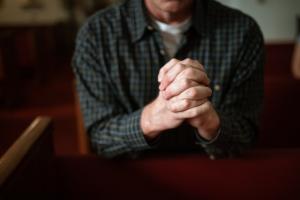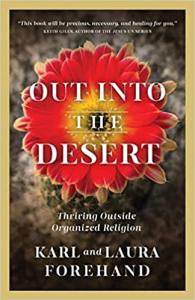
(An excerpt from our book, Out into the Desert)
by Karl and Laura Forehand
I have repeatedly stated that I admire those that would preserve the local church, but progress requires honesty. We should not only discover where we are going (goal setting, vision, mission), but we should also accurately articulate where we have fallen short in the past. We need to talk openly about what we have not done well. We need to admit our failures if we’re going to have success in the future.
In many ways, churches have often been considered sanctuaries. In some cases, it has been literal—in other cases spiritual or figurative. I would suggest the American church has become anything but a sanctuary for some people. It is not a safe place for many. The scandals in the various churches where children have been molested is widespread, but it also raises the obvious question, “If those are the ones that we know about, then how many more are there that didn’t say anything?” Our churches are too segregated, non-affirming, and judgmental. After being a pastor for 20 years, I left church life feeling like it was the last place I would want to be vulnerable or go to feel safe. It simply didn’t live up to the hype, and in many ways, failed to make me feel secure.
Sarah Bessey got me thinking the other day, while listening to a sermon she preached in 2016. She was explaining why she couldn’t attend church at that time. She said, “The church didn’t have room for my grief.” There is a certain commitment to happiness and joy in the typical American church. We can’t admit we’re not doing well and it’s not okay to not be okay. In a contemplative group we started recently, I instructed the people not to do any side talking when someone shared. The reason for this is so that people won’t try to fix each other. Someone that is struggling makes us incredibly uncomfortable and we don’t allow them just to be sad, angry, confused, or depressed. We want to get through this quickly so we can all be “happy” again.

When I propose that maybe we could do church somewhere else besides a dedicated building, the first thing that people (especially pastors) suggest is that we need a community. They say it in many different ways, but that’s what they mean. “We have a deep need for community!” I agree, I would just submit that the typical church in America is not particularly good at community. We may be good at giving people casseroles when someone dies, but how often are we vulnerable at church? How many of our deepest secrets do we share with the congregation? For that matter, how much time do we spend with the people we worship with? I’m sure there are exceptions, but in general, I would have a tough time characterizing what we do in the typical church with the word community.
This point is sure to cause consternation, but here goes. For years, we have been arguing over hymns and choruses—contemporary or traditional. All the while, the culture has been moving to more contemplative and ascetic practices. The most shocking thing I did as a pastor was to admit that I did meditation and yoga. Our worship doesn’t work at all for people like cultural creatives, some introverts, and those that desire more contemplative types of practices. The church has always been slow in relating to its culture because it always claims to be authentic, which often begs the question “what are we being true to?” It is usually just the practices of the near past, and nothing else.
Even with the Great Commission, we often get it wrong. We imagine disciple-making as instructional, instead of something more cathartic and organic. Excessive questions are discouraged, and we generally try to keep classes and instruction limited to things that are easily explained. We make it as efficient as we can, while most of us secretly long for something deeper and more heart centered.
As a pastor, I remember being frustrated when I tried to deal with sexual addiction in the church. The Church in America historically has not been effective at mental health and other difficult issues. We generally rely on spiritual bypassing and assume God will just miraculously zap away the problems we have. When people don’t get better, they injure each other. Hurt people, hurt people. It’s kind of a cycle. It might even be an epidemic. Before we shame someone back to church, we might want to consider that there may be a real, painful reason people are not coming.
I hope this doesn’t sound like I’m being too critical. I’m really trying to ask the question, “How can we do better?” I don’t want to stay out of church, but until one or both of us gets better, we can’t be together. I wish I were joking! I don’t hate the church; I’m just trying to imagine a better future for both of us.
Be where you are
Be who you are
Kael and Laura Forehand

Being: A Journey Toward Presence and Authenticity
Karl Forehand is a former pastor, podcaster, and award-winning author. His books include Apparent Faith: What Fatherhood Taught Me About the Father’s Heart and The Tea Shop. He is the creator of The Desert Sanctuary podcast. He is married to his wife Laura of 32 years and has one dog named Winston. His three children are grown and are beginning to multipl
Support us on Patreon * The Desert Sanctuary Website


















